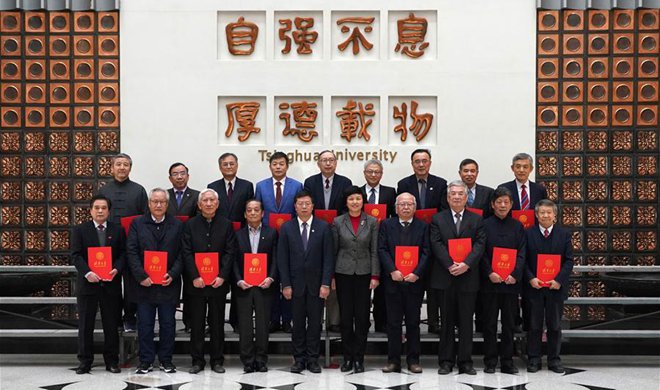NANCHANG, Jan. 22 (Xinhua) -- Oil mills powered by waterwheels were commonly seen in villages across southern China for centuries before they were replaced by modern electric machinery.
Chen Wenmu, 40, has childhood memories of the pounding of wooden mortars, sweating workers, and the creaking sound of grinding wheels.
In January, Chen and fellow villagers crowdfunded the restoration of an oil mill in his hometown, Xixiang Village in east China's Jiangxi Province. The mill, which cost around 600,000 yuan (90,900 U.S. dollars), uses traditional methods to press oil.
Farmers in village primarily grow rapeseeds and tea seeds. The main village is composed of 39 smaller hamlets.
"In the 1960s, there were over 20 oil mills in Xixiang. All of the mills closed in the 1990s," said Chen.
Chen ran a pharmacy in Beijing for 18 years, before returning to his hometown to begin the project.
"I grew up playing in the old oil mill in my village. I watched the wooden structures become abandoned and rotten. If I didn't rebuild the mill now, I'm afraid the techniques will be lost," he said.
Traditional oil extraction methods and technology are listed as municipal-level cultural heritage in the city of Yichun which governs Xixiang, but protection of the mills has been insufficient and only a few elderly residents know how to run a traditional oil mill. Chen invited Xiong Chuangui, 73, from neighboring Jiaogu Village, to help him rebuild the mill.
Xiong and two apprentices took one year to build a waterwheel and other wooden equipment for the mill.
Workers manually sort the seeds, use waterwheels to press the seeds, then heat them on stoves, wrap them in straw and compress them into large round seed cakes. They use wooden mortars to extract the oil from the cakes.
When the mill opened, it was welcomed by local residents who believe that oil extracted in the traditional way is of higher quality as it is without preservatives.
"Villagers bring peanuts, soy beans and sesame. They pay a small amount to turn them into oil," said Chen.
Chen's oil mill is still making a loss, but he insists things will get better.
"I need a minimum of four workers to run the mill, their combined wages total 700 yuan (106 U.S. dollars) a day. I hope it will become a tourist site so that it will bring in more income," Chen said.
On a recent weekend, more than 100 tourists visited to the mill.
"I have never seen anything like this. I don't even know what it is called, but the oil has apparently better quality than what I buy in the supermarket," said Ding Jun, a tourist in his twenties from Hefei, capital of Anhui Province.
"I also plan to build a rice mill in the village. I hope more young people can learn about the old techniques," Chen said.















